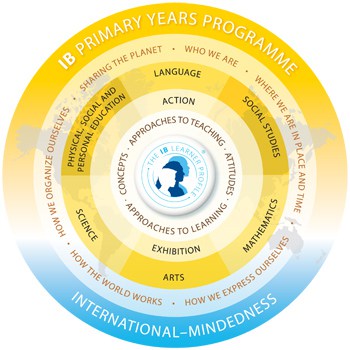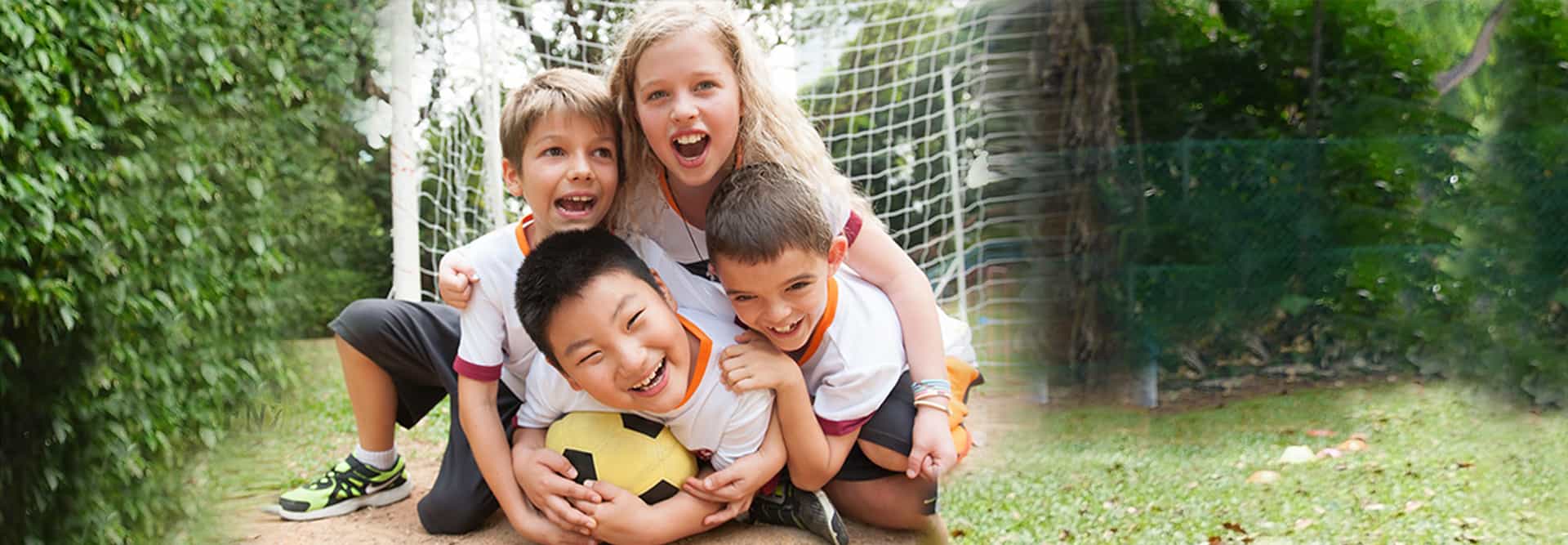Primary School Life
ISS International School prides itself on being a diverse, inclusive and vibrant learning community. As a truly international school, we welcome both children and adults from around the world into our multicultural environment.
The experiences that ISS International School offer our students go far beyond the classroom, and our busy Extra Curricular Activities (ECAs) programme allows students to try new experiences across the fields of arts, sports, sciences and creativity.
Our focus on each student’s well being is embedded in our Pastoral Programme which ensures that every student is given the social and emotional support they require to fulfil their potential. Classes are kept small so that teachers can pay attention to each child under their care. The Kindergarten and Grade 1 classes have no more than 20 students in each class, while class size from Grades 2 to 5 is limited to a maximum of 24 per class.
At ISS International School, our education approach inspires learners to become engaged, socially responsible individuals with an understanding of their responsibilities within their local community and as active global citizens. This is highlighted by the importance we place on student action. Students at ISS International School take action with what they’ve learnt and use it to improve both their lives and those of others.
In order to come together and celebrate our community, ISS International School has a number of events during the course of the year. These events allow the whole community to celebrate the many things that make ISS International School an exceptional place to live and learn.
About Primary School
As one of the most established International Baccalaureate (IB) Primary Years Programme (PYP) schools in Singapore, the PYP has provided an international framework for learning at ISS International School since we were first authorised in 2002.
The PYP is one of the 4 programmes of the IB and is designed for children between the ages of 4 and 12. The programme focuses on developing the whole child, affecting hearts as well as minds and addressing social, physical, emotional and cultural needs in addition to academic welfare. The PYP is based on research about best teaching practices from all over the world and provides a relevant and engaging educational programme.
The Primary School classroom blogs will give you a window into the great learning happening at ISS International School every day. For more details about the PYP, please visit IB website.
Should you require more information, you can find more details on our primary school grade level yearly overviews, Programme of Inquiry (POI), learning outcomes & benchmarks and assessment guidelines.
We look forward to welcoming you and your children into our international learning community.
The IB Primary Years Programme (IB PYP)
The PYP offers the framework for learning in Primary School at ISS International School.
Subjects offered for each Grade:
Arts
Language
Mathematics
Personal; Social and Physical Education
Science
Social Studies
Arts
Language
Mathematics
Personal; Social and Physical Education
Science
Social Studies
Literacy – English
Mandarin
Mathematics
Performing Arts
Physical Education
Visual Arts
Literacy – English
Mandarin
Mathematics
Performing Arts
Physical Education
Visual Arts
Literacy – English
Mandarin
Mathematics
Performing Arts
Physical Education
Visual Arts
Literacy – English
Mandarin
Mathematics
Performing Arts
Physical Education
Visual Arts
Literacy – English
Mandarin
Mathematics
Performing Arts
Physical Education
Visual Arts
The PYP offers a trans-disciplinary approach, which draws individual disciplines together into a coherent whole while preserving the essence of each subject. Details of the K-12 Learning Outcomes and Benchmarks for each individual subject can be found by clicking here. These outcomes and benchmarks provide a rigorous continuum for learning across and throughout the academic programmes at ISS International School.
At the heart of the PYP philosophy is a commitment to inquiry as the ideal vehicle for learning. Teachers and students are guided by a series of basic questions as they design curricular units for exploration and study. Throughout the units of study, each student will:
- Develop a deep understanding of important concepts
- Conduct research into knowledge that has local and global significance
- Acquire and practice a range of essential skills
- Develop positive attitudes towards learning, the environment, and other people
- Have the opportunity for involvement in responsible action and social service

The Programme of Inquiry (POI) is an outline of all of the Units of Inquiry that each grade level completes throughout the school year. Units of Inquiry are planned at each grade level and are often integrated with specialist subject teachers.
The student’s progress throughout the curriculum is documented in a reflective portfolio that outlines student achievement and accomplishments. Students and teachers collaborate on selections for the portfolio, which also facilitates transfer between schools offering the PYP. Grade 5 students, as the culmination of their PYP experience at ISS International School, participate in the PYP Exhibition. Their teachers guide them as they work on small group inquiry projects that require them to synthesise and apply their learning in a meaningful context.
ISS International School has been an IB PYP authorised school since 2002.
Early Years
Children in Kindergarten (K1 and K2) are aged four to six years old and this mixed-age grade level. Kindergarten learning at ISS International School follows the IB PYP curriculum framework which incorporates current research and best practices in early childhood education. Children participate in an inquiry-based programme that responds to their academic and developmental needs.
Our Image of the Child
We believe that children are naturally curious and full of wonder, with an innate ability to question and pursue their own learning and research. Our inquiry-based learning environment encourages children to develop these capacities and participate actively in exploring and problem-solving. Our teachers view children as competent partners in the learning experience and understand that each child has a unique pattern of growth and development. We encourage students to develop independence by taking initiative with their own self-care and organisation.
The Learning Environment
At ISS International School, our educational values and image of the child are communicated and supported by carefully planned learning environments.
- Physical Space: The physical learning environment is designed to support learning objectives, as well as the unique needs of young children. The arrangement of objects and activities encourages children to make choices, manipulate, create and represent their ideas and understanding. Displays serve as a continual reminder of children’s learning and points of engagement to support inquiries.
- Organisation: Our classroom time remains flexible within a balanced academic programme, while continuing to respond to the emerging needs and interests of students. Each day, children play a role in proposing activities. We show respect for children’s learning by not interrupting their sustained involvement in projects when it is not mandatory for a transition to occur.
- Connecting to Nature: Experiences with the natural world encourage children to use all of their senses to explore and discover. As children work with natural materials, they learn about their role using the physical properties of their world. Our programme supports engagement with nature inside and outside of the classroom.
Relationships and Interactions
Our safe and nurturing atmosphere encourages children to build confidence and take risks. We believe that children feel most safe, secure and supported when their sense of shared ownership and belonging is emphasised. Children learn about themselves and the world, and construct their own identity within the context of their families and communities. Connections to home and family are viewed as integral to learning and are a visible part of curriculum planning and the environment. Children work together as a learning group, fostering their individual competencies and making collaborative discoveries.
Play
Play is essential for young children’s cognitive, social, emotional, and physical development. Through play, children express, combine, and extend what they know about the world around them, incorporating their knowledge and skills. Children regularly participate in various kinds of play, which can be either child-led or teacher-initiated.
For more details on our Primary Year Programmes, you may visit IB PYP – Early Years Programme and IB Early Years Information.


